An Evening
with
Paul Hemphill
Auburn
Public Library
6:30 p.m.
Web page
by
Ed Williams
Department of Communication and Journalism
Auburn University
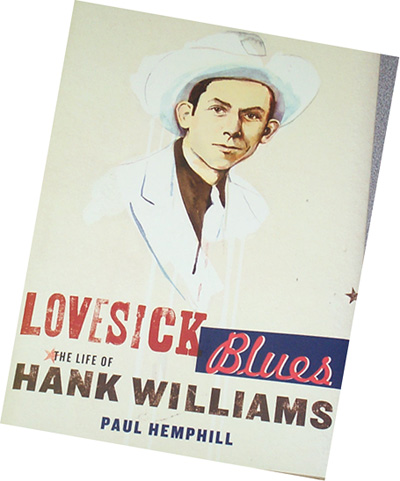
Book review
By Hardy Jackson
Professor, Jacksonville State University
For The Anniston Star
Lovesick Blues: The Life of Hank Williams by Paul Hemphill, Viking, 2005, 209 pages, $23.95.
I have never read a Paul Hemphill book I didn't like. They are all good. Some are better than others. Long Gone is my favorite. But this one ranks close.
What draws me to Hemphill is what seems to draw him to his subjects – a personal interest. He writes about things that I like to read about.
I like to read about Hank Williams. And I always hoped someone would write a book about him that I might be able to use in one of my classes. Here it is. A short, pretty complete, solid, catch the spirit of the era biography with just enough analysis to let you know that everything that moves a genius is not genius. Sometimes it is pain, suffering, shortcomings, personal demons, a lack of self-control, and maybe just wanting it all and getting it and finding it is never enough.
That is the Hank Williams you find in this book. If Paul Hemphill hasn’t got it right, he is about as close to it as you are going to get.
The story is familiar. Boy growing up poor with one talent and he used that to make it big and he burns out fast. Just about anyone who knows about Hank knows the tale. What is interesting about Hemphill’s way of telling it is how he works in the other characters – especially Hank’s Mama, his first wife, Audrey, his musical mentor Fred Rose, and Don Helms, whose steel guitar gave Hank’s songs that mournful background and whose steady friendship may have kept the singer alive a little longer. By bringing them to center stage with Hank and calling them what they were – good and bad – Paul Hemphill adds a dimension to the story that has not been told so well before.
Hemphill is an accessible writer. Clean prose. Nothing fancy. Like the time and the music he writes about. Without academic detail he tells of how the country music world was back then, how someone like Hank worked himself up from local radio to regional radio to the Grand Ole Opry and became a “star,” only to have to stay on the road, play the honky tonks, school auditoriums, county fairs to make the money and sell the records and convince juke box distributors (who bought more disks than fans) to put his songs on their machines.
Hemphill also catches the desperate struggle Williams had with alcohol and with the women in his life – and shows how the two were related. And though Hank is a hero to the author, Hemphill is not uncritical of the man. It is a sympathetic, yet balanced account.
In the end, Hemphill comes to grips with the contradiction that is at the heart of Hank Williams and his music. Sober in the studio, too serious about his music to be otherwise, he made the records that made him a legend today. But if he had lived out his dream to retire to his farm and “watch them cattle work while I write songs and fish” there would be no legend. All that went on outside -- the loves and hates and fights and whiskey and pills and leavings and returnings and heartache and loneliness – that was what he wrote about.
That is what killed Hank Williams. And that is what made him great.
Speaks at Auburn Public Library
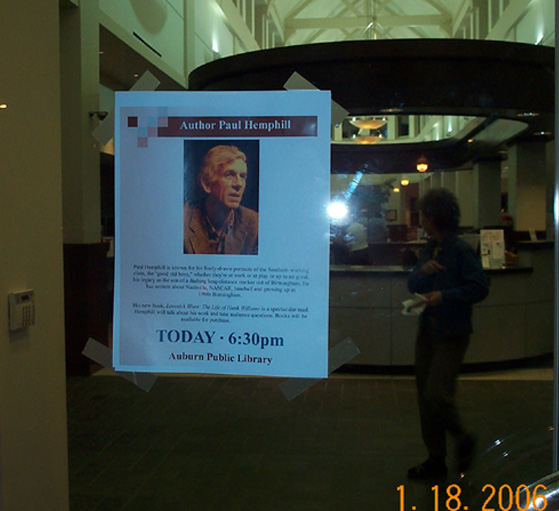
Paul Hemphill Web page
AUBURN -- Literary journalist and novelist Paul Hemphill gave a reading and spoke Jan. 18, 2006, at Auburn Public Library.
The Auburn University graduate read from his newest book, a biography of Hank Williams.
Hemphill, Pulitzer nominee, is a nationally known sports writer, journalist and author of 15 books, including the newly published "Lovesick Blues: The Life of Hank Williams."
His other works include The Ballad of Little River, about the burning of a black church in Alabama; Long Gone, a novel that became an HBO special; and Leaving Birmingham, a memoir about growing up in the Magic City in the mid 20th century.
A Nieman Fellow, Hemphill has also been a commentator for National Public Radio.
The Hemphill program was sponsored by Friends of Auburn Public Library.
A reception followed the program, and copies of Hemphill's works were available for purchase and signing.
Auburn Public Library Web page
The friends of
Auburn Public Library
P.O. Box 1854
Auburn, Ala. 36831-1854
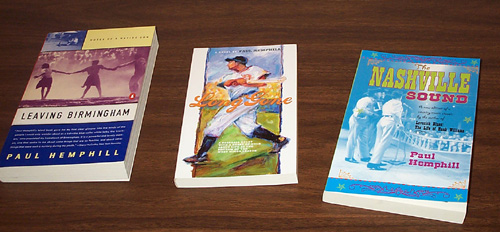
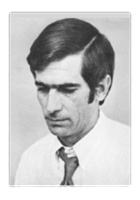
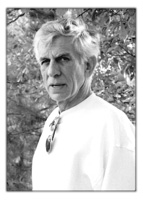
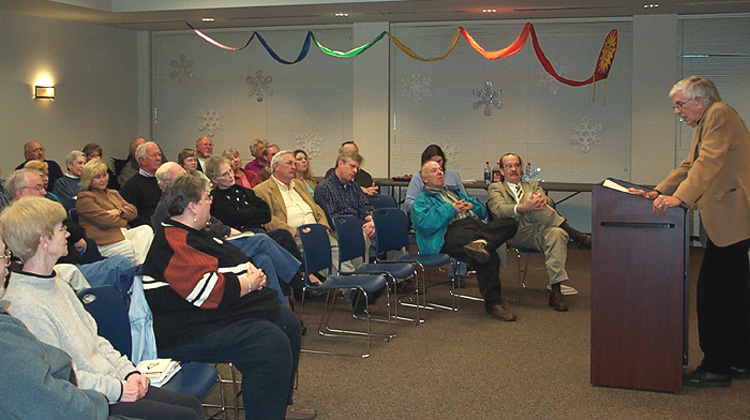
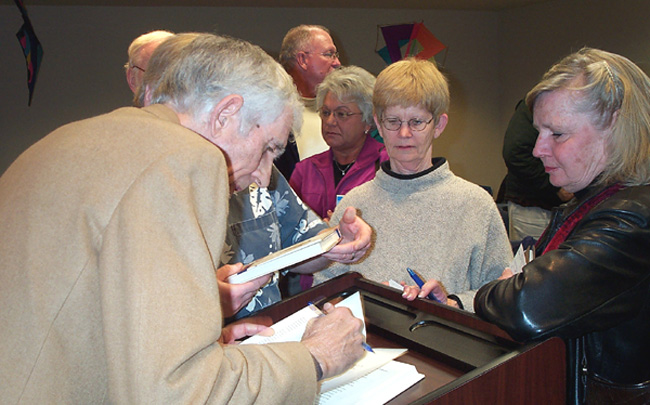

Thanks for visiting
"An Evening
with
Paul Hemphill"
Ed Williams
willik5@auburn.edu
Professor
Department of
Communication
and Journalism
217 Tichenor Hall
Auburn University